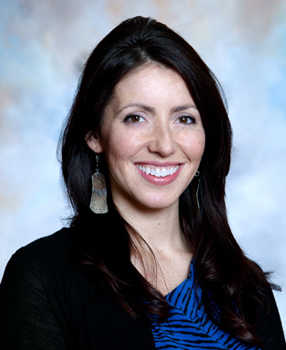
Emily Musil Church
History Professor Emily Musil Church is teaming up with USC Shoah Foundation associate director of education – evaluation and scholarship Amy M. Carnes, Ph.D., to bring seven students on their first trip to Rwanda on the second annual Problems Without Passports trip.
Problems Without Passports courses, held in England, Brazil, Belize, Dubai, and more, allow USC undergraduates to engage in problem-based learning by conducting research in a foreign country. The Rwanda course, “Rebuilding Rwanda: Memory, Testimony, and Living Together,” studies the history, genocide, aftermath and creation of modern day Rwanda, immersing students in the complexities of socio-political reconstruction after genocide.
Church is teaching this year’s course alongside Carnes, who led the course with associate director of research Dan Leshem last summer. She is a professor of history at Lafayette College in Pennsylvania with research interests in African history and human rights.
Today, the class wrapped up the two-week introductory course at USC that precedes their two-and-a-half week trip to Rwanda. Once in Rwanda, the students will conduct most of their research and write their final papers about Rwanda’s process of rebuilding after the genocide of the Tutsis 20 years ago.
Church said the goal for the past two weeks has been to help students understand Rwanda’s history, present day and place within the global context. They are also watching testimonies of Rwandan Tutsi Genocide survivors in the Visual History Archive and learning how to use them as evidence for their final papers.
Guest lecturers including USC Shoah Foundation staff also talked to the class about interviewing techniques, giving testimony and genocide education.
This weekend, the class will travel to Rwanda. There, Church said she wants them to experience the country and hear the voices of Rwandans who are working to rebuild their country after genocide. The trip is not just an opportunity to sightsee, but to engage with the people and think about how to solve problems.
“We want them to meet people in Rwanda and see what they’re doing,” Church said. “In a lot of ways Rwanda is a model for a successful developing country.”
Students may find the course overwhelming, Church acknowledged – not only because of the challenging workload but also because of the psychological and emotional intensity of learning about the Rwandan Tutsi Genocide. Students will have plenty of time to write in their journals and reflect on their experiences throughout the trip.
“We told them on day one this is an intense class on many levels,” she said. “We’re trying to build in space for them to think through a lot of philosophical questions – what it meant that this was a genocide where people’s neighbors were the perpetrators.”